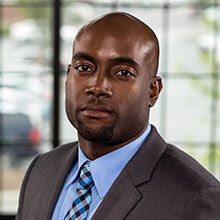Possession Of An Altered Or Fake Credit Card
Home » Practice Areas » Detroit Fraud Lawyer » Possession Of An Altered Or Fake Credit Card
The use of altered or forged Financial Transaction Devices (FTDs) is a growing problem in the United States. Merchants and financial institutions lose billions of dollars every year to schemes involving altered or forged FTDs. For this reason, stores are becoming more vigilant in detecting fraudsters, and the authorities vigorously prosecute any person accused of using a fake credit card or gift card.
Many altered or fake credit cards look like the real thing, complete with logos, names, and of course a functioning account number. One common scheme is to convert a gift card or prepaid card into a credit card by altering the magnetic strip and embossing the account holder’s name on the front. There are ways to detect these forged cards, but merchants rarely have the time to double check every transaction during a busy day.
What Are the Penalties for Creating, Possessing, or Using a Forged or Altered FTD?
According to section 750.157n of the Michigan Penal Code, it’s a felony to knowingly possess a fraudulent or altered FTD. This offense is different than most because it does not require the prosecutor to prove the defendant’s criminal intent. Instead, the prosecutor only needs to prove that the accused knew the card was fraudulent or altered.
Michigan Penal Code section 750.157r punishes the act of forging, altering, simulating, or counterfeiting an FTD. Like the possession of an altered FTD, this offense is a felony. The sentence that you might receive after a conviction for either offense will depend on your lawyer’s abilities and the judge’s appraisal of your case. In general, the maximum punishment for these crimes is a $5,000 fine and up to 4 years in prison.
How Can a Detroit Fraud Lawyer Help?
Your Detroit fraud lawyer’s primary goal is to limit what evidence the prosecutor can use against you. There are strict procedural and legal guidelines that define what evidence and testimony can be presented to the jury, and in may cases the prosecutor will try to bend these rules. A good defense attorney will ensure that no illegal evidence gets used against you. The following are examples of the kind of evidence that can be suppressed from the prosecutor’s case:
- During a routine traffic stop, the police search your car and find forged credit cards, but there was no probable cause to justify the search of your vehicle
- The police searched your home and found incriminating evidence, but they were executing an arrest warrant as opposed to a search warrant
- During your arrest, the police failed to give you a reading of your Miranda rights (the rights to remain silent and get a lawyer) and then pressured you into confessing to the crime.
If your lawyer can convince the judge to order the exclusion of key evidence from the prosecutor’s case, it may be possible to request the dismissal of the charges before the trial starts. Even if the case goes to trial, the prosecutor will have a difficult time proving beyond a reasonable doubt that you committed the crime. When your lawyer is able to show that there is a reasonable possibility that you are innocent, the jury will be instructed to acquit you. Your lawyer’s advocacy skills and knowledge of legal procedures will be crucial in punching holes in the prosecutor’s case.
When you get charged with a crime, your reputation, freedom, and finances are all at stake so you should spare no expense in seeking a positive case outcome. At Davis Law Group, we have a proven track record of success in helping our clients achieve desirable results in the criminal justice system. If you’ve been charged with using or making an altered financial transaction device, call us today for a free and confidential consultation of your case.
Charged with fraud? Contact us today.
Your initial consultation will always be free and confidential. Call (313) 818-3238 today or fill out the form below and we will help you.
"*" indicates required fields
